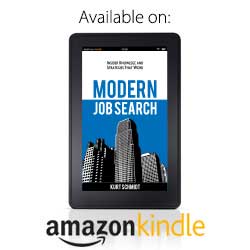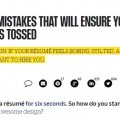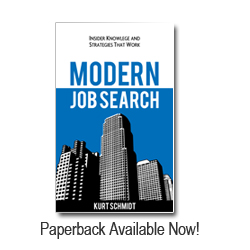
Quora: What is the best way to find an entry level job after getting your degree?
By Kurt Schmidt In Uncategorized On May 24, 2017
Quora Question: What is the best way to find an entry level job after getting your degree?
“I’m finding it frustrating that after a few months I am still not able to find work. I graduated cum laude and even have successful military experience. I have always kept good grades and stayed focused and out of trouble. From about every school assembly I have attended since the third grade I have done my part to be a valuable member of the work force. So I am wondering what is the difficulty in getting my foot in the door. I have seen research that even though the recession, or at least the unemployment side of it, seems to be tapering off, the unemployment rate for 20-30 year olds is around 25%, far more than the national average and terrifying for new graduates.
I know that this isn’t a lot of personal on my situation specifically, but I want to know what are the best modern ways for students who have recently graduated or will in the next six months for getting a good entry level job, especially in this economy.”
*************
As a professional headhunter, the single most powerful tool I use is LinkedIn. It is indispensable for finding the profiles and learning about the backgrounds of people who have the job(s) that interest you the most. Start by identifying people who work at companies you like, share your education background or have other similar experience. Take a good look at their career trajectories and the language they use to describe themselves and make sure your resume and LinkedIn profile is similar. Learn what you can from how they packaged themselves and how they arrived where they are.
Then, most importantly, make contact. Look up phone numbers, find email addresses, join groups, take chances and contact people directly. Seek advice from people who are doing what you want to do and literally ask them how they got there. Figure out who the hiring managers are for the positions you want to pursue and ask them what is important or challenging to them. It is NOT important that there are open jobs with any of the hiring managers or companies you contact. At this stage you are only networking for informational purposes, to learn and to figure out how you can help. You don’t need to send everyone you contact a resume or even let them know you’re looking for a job immediately. Keep it easy for them in the beginning and ask open questions about how they got their first jobs, what their challenges were and what they would do differently if they had to do it again. Everyone you contact will understand that you’re looking for a job but by not asking directly and seeking advice, you’ll get a lot more replies and a lot more opportunities to expand your network.
I do this same type of research and networking when I market candidates to companies in order to generate new job orders or develop a new client. In 15 years of commission-only recruiting “cold-call/email marketing” like this has never failed me – as long as I did the research first and ensured that I could bring value.
You have nothing to lose by taking time to contact people who have the types of jobs you want and asking their advice. You will get a lot more feedback by talking with people instead of just blindly sending resumes or completing online applications. Almost everyone you contact will have received a favor, advice or some kind of help from someone along the way and more than you think will be happy to pass it along.
This kind of networking is “critical mass” oriented. With 330 million members, LinkedIn is essentially an infinite resource. You control who and how many people you contact and what you say, the rest is timing and that can be managed by increasing the volume of contacts. Bottom line: If you develop dialogues with enough people in the space in which you want to work, sooner or later, you will run into an open job, or someone will give you a good referral or some other unpredictable result will come along and you will find yourself employed. The key is communicating with real people though and not relying on job applications to do the work for you.
Follow me on Quora for more answers to your questions. And if you want, fire off your own question!
*****************
Kurt Schmidt is the author of “Modern Job Search” and the President and Owner of Capto Systems, an executive search firm focused on supply chain and strategic sourcing jobs in manufacturing and energy. He’s also an aspiring photographer and traveler. If you’re really looking for a job, you need this book!








